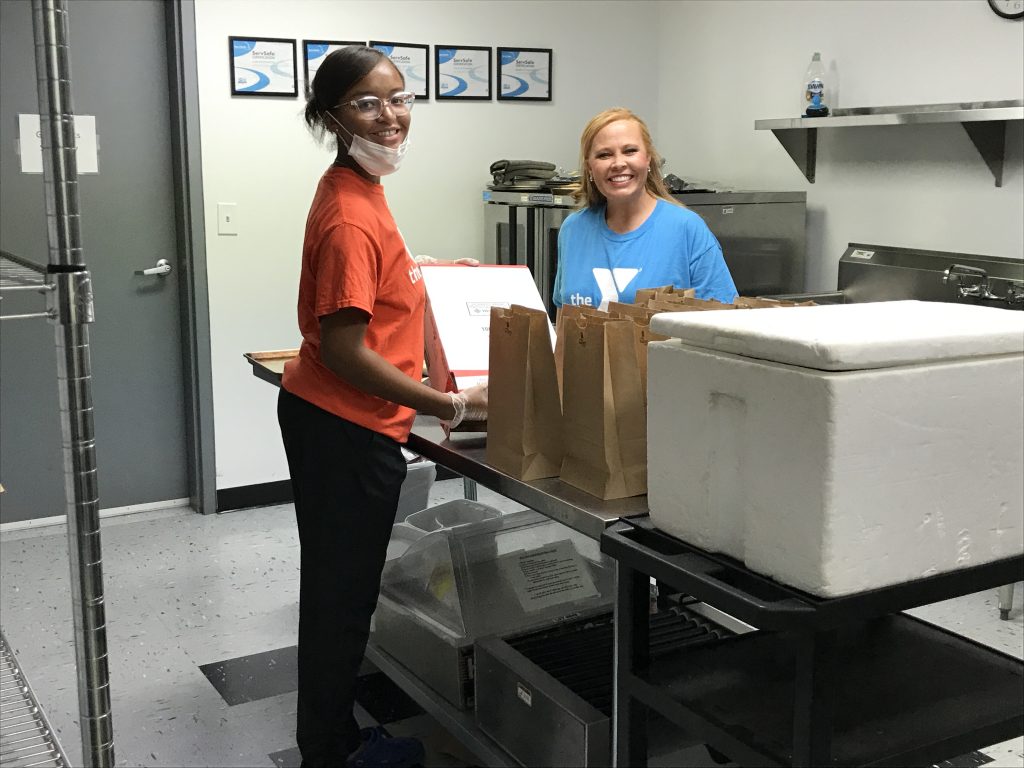
School’s out for the summer, but hunger doesn’t stop when the final bell rings. As many families make plans for vacations and summer camps, many others worry about how they will feed their children without the free meal programs provided at school.
According to Alabama Public Health, one out of every four children struggles with a lack of access to enough food for an active, healthy life. Further research suggests that COVID-19 led to increased food insecurity in Alabama. With the rising costs of groceries and other basic needs due to inflation – increasing financial stress on more families — we can only predict that this will remain a growing issue.
United Way of Central Alabama (UWCA) and our partner agencies continue to address these challenges. By coming up with solutions to combat new problems, such as staffing shortages and supply chain issues, we want to remove at least one worry from a parent’s plate. We’ve worked with partners in the past, such as the Blount County Education Foundation, to launch a summer feeding program in the area. More recently, UWCA joined forces with the U.S. Department of Agriculture to provide fresh food to families during the pandemic.
Another UWCA partner agency YMCA of Chilton County hasn’t let roadblocks, whether COVID-related or otherwise, stand in the way of its mission to build a healthy mind, body and spirit for all. One of the services regularly provided is an after-school feeding program. And that gets extended to three meals a day during the summer months.
Each day, the staff prepares a nutritious breakfast, lunch and late afternoon “snack,” which really equates to dinner. While the meals are for students enrolled in the YMCA summer camp, they’re available to all school-age children.
Feeding a community

With around 200 children signed up for summer camp and an additional 100 who visit during mealtime, it’s safe to say the YMCA’s feeding program is a huge success and a win in the fight against food insecurity. But it hasn’t come without a few hurdles.
Lori Patterson, YMCA of Chilton County CEO and Director, said despite providing a variety of delicious “non-cafeteria-type” food (chicken burgers, barbecue and catered options such as Jack’s, for example), there are still negative feelings about receiving free meals.
“One challenge is the stigma associated with being underprivileged if you have to get a free meal,” said Lori. “We’ve overcome that by having some people who don’t necessarily need it but just want it — to help families out in the summer — bring their kids by and pick up lunch. So, when kids from lower socio-economic backgrounds see the quote-unquote ‘cool kids’ from school stopping and getting a meal, it makes them more likely to come in, sit down and eat.”
Staff sees another example of this when 50 homeschoolers come to the YMCA during the summer. They’re not enrolled in camp and don’t live in low-income housing, but they continue to stop in for lunch and set a precedent that no one should be ashamed about eating for free. Lori describes it as one of their greatest successes — getting kids who they know truly need these meals to take advantage of the service without feeling ashamed.
Word of mouth, social media and advertisements in local print publications also spread awareness of the program and encourage families to send their kids. And when the YMCA can’t get kids to come to the meals, staff will take the meals to them.
The YMCA Food Program Director Tisha Woodham Creel will take additional meals (she always prepares a few extra) to three or four low-income neighborhoods. Because of the relationship she’s developed with individuals and the recognizable logo on the side of the van, kids know it’s a trusted source to receive a free meal.
Thinking outside the box and into a raised bed, the YMCA also started a large, 12-row community garden. Kids enrolled in summer camp are divided into groups, each responsible for two rows of the garden. Not only do children learn valuable skills as gardeners, enabling them to plant and harvest, but they also carry the process to fruition; the end goal is for the kids to prepare the fruits and vegetables they’ve grown in healthy dishes.
Fighting food insecurity this summer

It’s encouraging to see organizations, such as the YMCA, find innovative ways to feed food-insecure families, but there’s still work ahead. As we move into the coming months, programmatic regulations across the state are going into effect that will result in many sites closing or operating at a reduced scale this summer.
UWCA will keep exploring ways to work with partners facing these issues due to factors outside their control. We’ve partnered with many organizations to expand summer meal programs in recent years, and we will continue working with local school districts and community organizations to navigate challenges, find innovative solutions and ensure every child across the region has access to meals when school is out.
To learn more about United Way of Central Alabama and our ongoing work in the community, visit uwca.org.